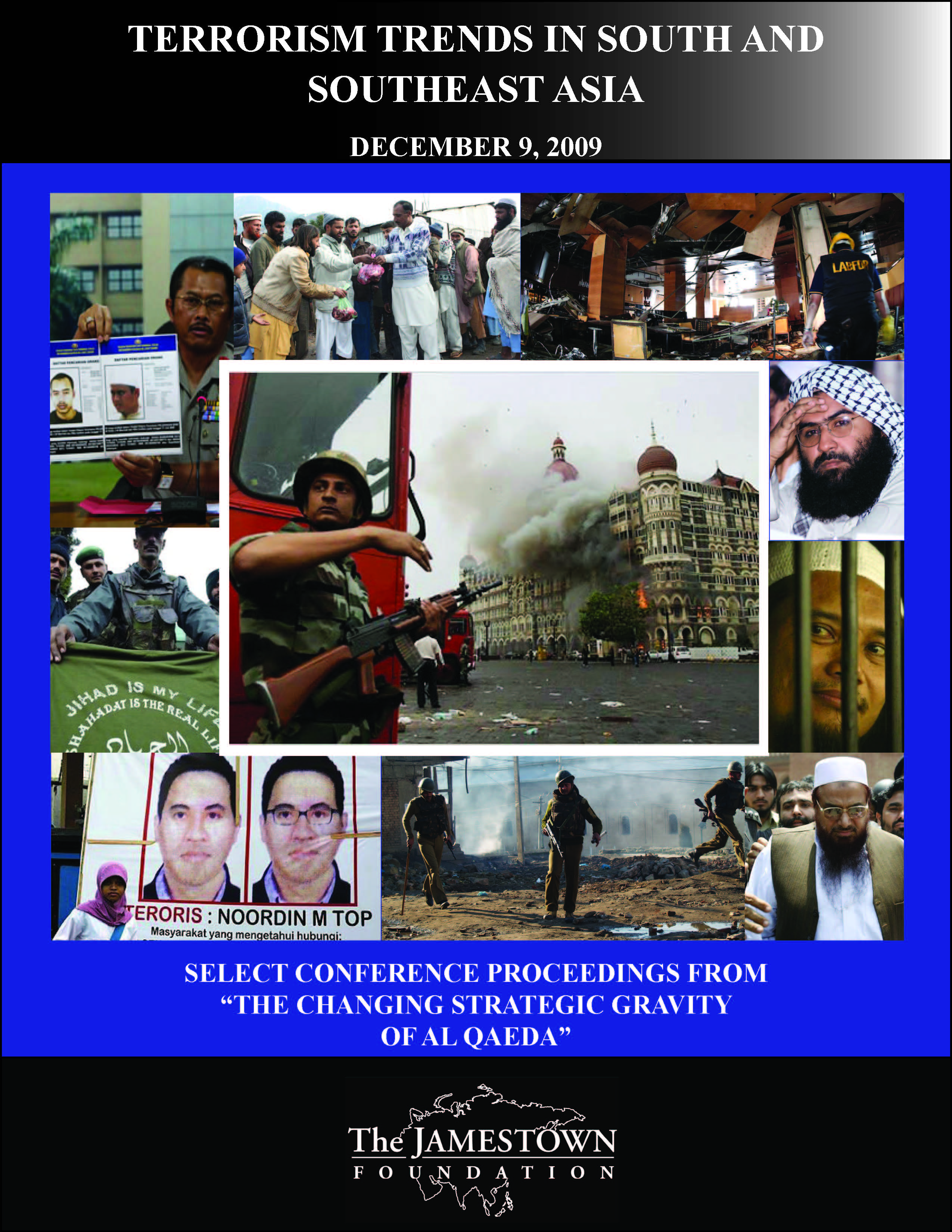Terrorism Trends in South and Southeast Asia

While the Arab Middle East is political Islam’s ideological and historical core, South Asia and Southeast Asia, concentrated in the Indonesian archipelago, make up the modern demographic core of the Muslim world. Advocates of political jihadism have been adept at exploiting pre-existing territorial and ethnic grievances, both perceived and real, in these highly complex and fragmented states. Terror networks in these tumultuous mega-regions have also been cleverly calculating in their agitation of simmering disputes that have arisen from the communal tensions of religious difference that have existed in varying degrees since the region’s violent Cold War-era decolonization.
To better understand the social fabric of terrorism in South and Southeast Asia, The Jamestown Foundation held a panel entitled, “Terrorist Trends in South Asia,” as a component of its annual terrorism conference on December 9th, 2009 at the National Press Club, "The Changing Strategic Gravity of al-Qaeda". The contents of that panel, including full transcripts, question and answer sessions, executive summaries, slide presentations, panelist biographies and the full transcript of keynote speaker Bruce Riedel’s presentation.




